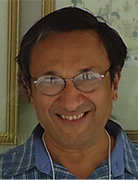 |
Gyan Bhanot, PhD Dr. Bhanot's current research interests are is in the area of Translational Medicine and Evolutionary Biology, particularly working on developing methods to improve chemotherapy outcome, optimize immune checkpoint therapy, and understand the role of the ribosome in evolution. |
 |
Jian Cao, PhD Bioinformatic studies in Dr. Cao’s lab center around analyzing viral DNA integration in tumor genome. We develop novel platforms to detect clonal amplification of oncoviral sequences in tumors, search for novel oncoviral etiology in rare cancers, and study functions of reoccurred viral integrations. The lab also conducts bench work to study epigenetic regulation of cancer immunity. |
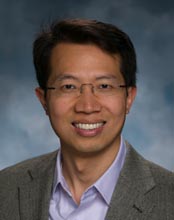 |
Chang S. Chan, PhD Dr. Chan’s lab is interested in understanding the role of p53 in cancer, and focuses on cancer genomics, cancer evolution and resistance to therapy, and gene regulation. |
 |
Subhajyoti De, PhD Dr. De’s lab develops and employs computational genomics tools to understand the biology of cancer and apply that knowledge to improve early detection, stratification, and therapeutic opportunities for patients. The interests of the lab include single molecule sequencing, evolutionary dynamics of tumor, genomic instability, and non-coding mutations in cancer. |
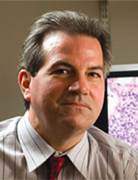 |
David J. Foran, PhD Dr. Foran's lab designs, develops, and implements new approaches in computational imaging, statistical pattern recognition, and computer-based diagnostics for resolving challenging problems in oncology / pathology / radiology. |
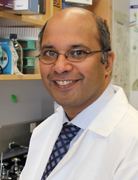 |
Shridar Ganesan, MD, PhD Dr. Ganesan’s lab studies DNA repair mechanisms and chromatin biology, the role of BRCA1 and 53BP1 in DNA repair, tumorigenesis and chemosensitivity, and genomic classification of human cancer. |
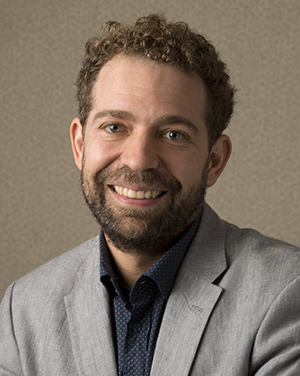 |
Daniel Herranz Benito, PharmD, PhD Dr. Herranz’s lab is is focused on discovering and defining how oncogenic and tumor suppressor enhancers impact tumorigenesis in hematological and solid tumors. The lab also works on dissecting the interplay between cancer cell-specific metabolic rewiring and epigenetics in T-cell Acute Lymphoblastic Leukemia (T-ALL). |
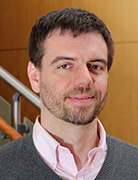 |
Greg M. Riedlinger, MD, PhD Dr. Riedlinger’s research interests are in employing next-generation sequencing for molecular oncology, and developing pathology informatics tools for personalized medicine. |
 |
Michael P. Verzi, PhD Dr. Verzi’s lab uses epigenomic approaches to understand how transcriptional regulatory mechanisms contribute to intestinal development and disease, particularly in how tumor suppressor transcription factors interact with tumor chromatin to control progression of colorectal cancer. |
 |
William J. Welsh, PhD Dr. Welsh’s lab is interested in drug discovery, chemical informatics, predictive toxicology, medicinal chemistry, rational drug design, pattern recognition, and data mining tools. |

